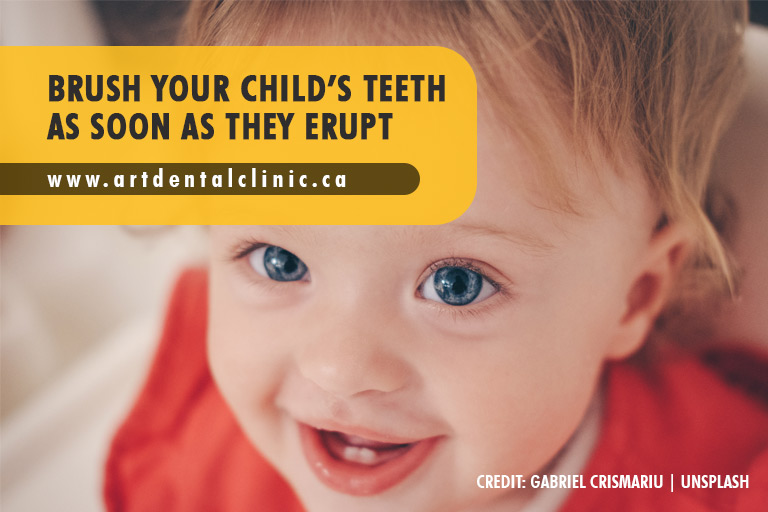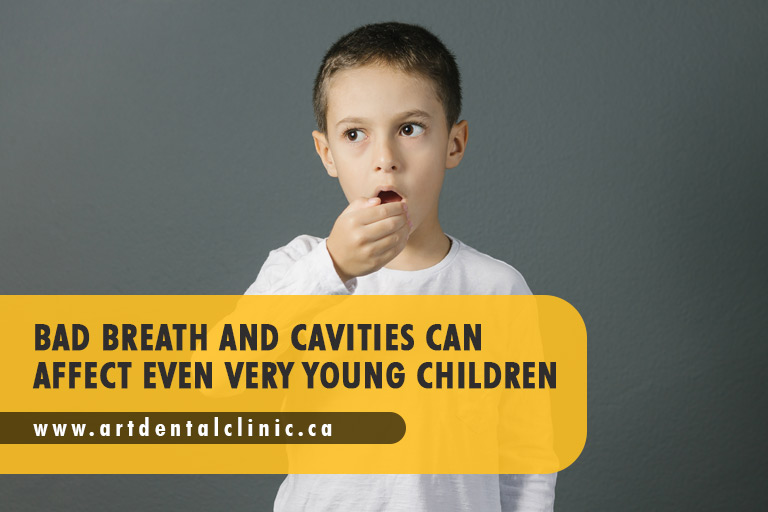Good dental hygiene is critical for people of all ages, particularly for children, as dental problems are among the most common health issues they face. According to the Canadian government, tooth decay affects approximately 57% of Canadian children aged 6-11 and 59% of those aged 12-19. Poor dental health can cause several issues that can have a lifelong impact on children.
Despite the importance of children’s dental care, many children do not seem enthusiastic about brushing, flossing, and visiting the dentist. As a result, pediatric dentists often need to use creative ways to encourage children to take care of their teeth. Here are some tips from pediatric dentists to help parents get their kids excited about dental health:
Start Early

Starting early is one of the best ways for parents to get their kids excited about dental health. Pediatric dentists recommend that parents start brushing their children’s teeth as soon as they start to come in, usually around 6 months of age.
By starting early, parents can establish good dental habits and help their kids become accustomed to brushing and visiting the dentist.
Make It Fun
Dental hygiene does not have to be boring. There are numerous ways to make brushing and flossing more fun for children.
For instance, parents can buy toothbrushes and toothpaste with their children’s favourite characters on them, or they can play music while they brush. Some parents even create silly songs or stories to make brushing and flossing more enjoyable.
Give Rewards
Kids love rewards, and parents can use this to their advantage when it comes to dental health. Parents can offer rewards for brushing and flossing every day or for making it through a dentist visit without any fuss. Rewards can be anything from stickers and small toys to special outings or treats.
Use Positive Reinforcement
Positive reinforcement is a powerful tool for getting kids excited about dental health. When children do a good job brushing and flossing, parents can praise them and let them know how proud they are. This can help children feel more motivated to keep up their good habits.
Educate Them on the Importance of Dental Hygiene
Children are often more excited about things when they understand why they are essential. Parents can help their children get excited about dental health by educating them about why it is so important to brush and floss every day. Parents can explain how brushing and flossing can help prevent cavities, gum disease, and other dental problems.
Lead by Example
Children frequently learn by example, and parents should set a good one when it comes to dental hygiene.
Parents should brush and floss their teeth regularly and ensure they are visiting a pediatric dental office on a regular basis. This can help children see that dental health is important for everyone, not just children.
Involve Them in the Process
Kids are more likely to get excited about children’s dental care when they feel involved in the process. Parents can let their children choose their own toothbrushes and toothpaste or give them a say in when they brush and floss. This can help children feel more ownership over their dental health.
Make it a Routine
Finally, parents can help their children get excited about dental hygiene by making it a part of their daily routine.
By brushing and flossing at the same time every day, children can start to see it as just another part of their day, like eating breakfast or getting dressed. This can help make dental hygiene feel less like a chore and more like a habit.
The Consequences of Poor Dental Health in Children

Poor dental health in children can have numerous consequences, ranging from mild to severe. Some of the most common consequences of poor dental health in children include the following:
Tooth Decay
Tooth decay is the most common consequence of poor dental health in children. When children consume sugary and starchy foods and beverages, the bacteria in their mouths produce acid that can erode their tooth enamel, leading to cavities.
Pain and Discomfort
Poor dental health can cause pain and discomfort, making it difficult for children to eat and speak. Toothaches and sensitive teeth can cause a lot of discomfort and can even lead to difficulty sleeping.
Gum Disease
Gum disease, also known as periodontitis, is an infection of the tissues that surround and support the teeth. Poor dental hygiene can cause gum disease, which can lead to inflammation, bleeding, and eventually tooth loss.
Bad Breath
Poor dental hygiene can cause bad breath, also known as halitosis. Bacteria in the mouth can cause a foul odour that can be embarrassing for children and cause social isolation.
Speech Development Issues
Poor dental health can impact speech development in children, especially when it affects the development of their teeth and jaw. Difficulty pronouncing certain sounds can cause frustration and difficulty communicating, which can affect social interactions and self-esteem.
Visit Our Dental Office in Waterloo!
By following the tips provided by pediatric dentists, parents can help their children develop healthy dental habits, including regular brushing and flossing, healthy eating habits, and regular dental visits.
Making kids’ dental hygiene fun and involving them in the process can help motivate them to take care of their teeth and gums. By prioritizing dental health and setting a good example, parents can help their children maintain healthy smiles for years to come.
Remember, good dental hygiene habits start at a young age, and with the right guidance and encouragement, children can develop the habits they need to maintain healthy teeth and gums throughout their lives.
At ART Dental Clinic, our team offers pediatric dentistry, and we are excited to help your child maintain good oral health. Contact us today for more information on our services.

